Find Endless Energy
 Working out regularly can provide endless energy. It’s true! It might not seem like it if you’ve never worked out regularly, simply because it looks like a lot of work. However, once you start working out, within a few weeks, you’ll notice that you’re getting tasks completed more quickly and have energy at the end of the work day. Sometimes, when you’re feeling exhausted, forcing yourself to go to your workout can give you that second wind, boost of energy to keep you going at top speed. How can this be? It seems like the more you work, the more exhausted you should be. While that may be true initially, once your body gets stronger, you’ll see a huge difference in your energy level.
Working out regularly can provide endless energy. It’s true! It might not seem like it if you’ve never worked out regularly, simply because it looks like a lot of work. However, once you start working out, within a few weeks, you’ll notice that you’re getting tasks completed more quickly and have energy at the end of the work day. Sometimes, when you’re feeling exhausted, forcing yourself to go to your workout can give you that second wind, boost of energy to keep you going at top speed. How can this be? It seems like the more you work, the more exhausted you should be. While that may be true initially, once your body gets stronger, you’ll see a huge difference in your energy level.
You can get benefits from exercising even if you don’t workout regularly.
Of course, I’m a proponent of regular exercise and I do practice what I preach. So, why would I say you don’t have to workout regularly to get energy boosting benefits from an exercise session? Because it’s true. You’ll get more energy throughout the day if you exercise regularly, but for those who don’t and get that sleepy feeling mid afternoon, taking a walk or participating in something active can get your blood circulating and provide benefits better than a nap. People who exercise regularly often instinctively know this and get up and move around.
Regular exercise helps people boost their energy across the board.
Studies show that regular exercise can help increase energy levels and reduce fatigue levels. After compiling the results of over 70 studies that involved 6,800 people the results were clear. In over 90% of the studies, the results were the same, people who didn’t exercise regularly and started a program of regular exercise reduced their fatigue level, compared to the control group that made no changes. The results were similar for all types of people, those who were healthy, those with conditions like heart disease and diabetes and even cancer patients.
Exercise helps burn off the hormones from stress.
If you’ve ever had a stressful day, you know how it leaves you feeling exhausted, yet on edge at the same time. It’s the fight or flight response that’s occurring. Your body is poised, ready for action with other changes, like less blood to the digestive system and a faster heartbeat occurring to help you in a struggle or escape. That can leave you feeling edgy, but is also extremely wearing. Exercise not only increases circulation, it burns off the hormones of stress that wears you out and replaces them with ones that make you feel good.
- Exercise helps you sleep better at night and improves the quality of sleep. The increased sleep and improved quality adds to your energy level.
- While exercise is important, so is healthy eating. Sugar can be a real downer, once the initial burst of energy wears off. If you feel like eating will help, make it cold crisp fruit or vegetables.
- Drinking a glass of water also boosts energy more than a cup of coffee in most cases. When you’re sleepy, if moving around doesn’t help, perhaps it’s mild dehydration. Drink some water for a boost.
- If you aren’t convinced that moving more boosts your energy, consider how tired you feel after a super slow day at work, compared to one when you were busy throughout the day.



 If you’re in a relationship and decided to start a program of regular exercise, why not bring your life partner with you. Exercise is good for your sex life, so you probably want to include them, too! It all starts with helping your overall health and making you feel good. It can help lower blood pressure, boost your energy level and give you an overall good feeling, which plays a role in how active you are when it comes to sex.
If you’re in a relationship and decided to start a program of regular exercise, why not bring your life partner with you. Exercise is good for your sex life, so you probably want to include them, too! It all starts with helping your overall health and making you feel good. It can help lower blood pressure, boost your energy level and give you an overall good feeling, which plays a role in how active you are when it comes to sex.
 Hormones aren’t just for controlling sexual desire and characteristics, hormones affect your weight, too. Your body has a wide variety of other hormones that keep it functioning at its best. In fact, there’s a huge link between the right balance of hormones and your health. Hormones influence all bodily functions from how much energy you have to how much fat you store. Even your brain health depends on the right balance of hormones. You probably already realize that a low production of thyroid hormone will make you gain weight or too much estrogen can pack on the pounds. There are other hormones that affect weight gain.
Hormones aren’t just for controlling sexual desire and characteristics, hormones affect your weight, too. Your body has a wide variety of other hormones that keep it functioning at its best. In fact, there’s a huge link between the right balance of hormones and your health. Hormones influence all bodily functions from how much energy you have to how much fat you store. Even your brain health depends on the right balance of hormones. You probably already realize that a low production of thyroid hormone will make you gain weight or too much estrogen can pack on the pounds. There are other hormones that affect weight gain.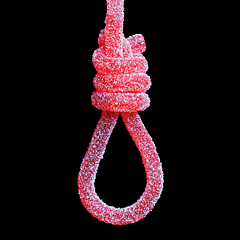
 The consumption of too much sugar can be one of the many culprits in metabolic disease, referred to medically as metabolic syndrome. It’s actually a cluster of different conditions that include increased blood sugar levels, high blood pressure, visceral fat—fat around the waist and higher bad cholesterol and triglyceride levels. Those cause an increased risk for more serious conditions like, stroke, heart disease and diabetes.
The consumption of too much sugar can be one of the many culprits in metabolic disease, referred to medically as metabolic syndrome. It’s actually a cluster of different conditions that include increased blood sugar levels, high blood pressure, visceral fat—fat around the waist and higher bad cholesterol and triglyceride levels. Those cause an increased risk for more serious conditions like, stroke, heart disease and diabetes.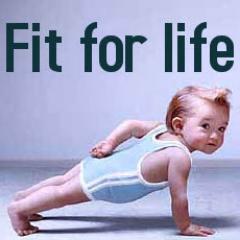
 No truer words are spoken than “you are what you eat.” Learning the basics can provide information to have good nutrition for life. You can make it more complex, but the simplest way is to break it down to colors on your plate and eating whole foods. Whole foods are those that are minimally processed. They include fresh fruits and vegetables, plus lean meat and whole grains. They don’t have additives or chemicals in them and are closest to their natural form as possible.
No truer words are spoken than “you are what you eat.” Learning the basics can provide information to have good nutrition for life. You can make it more complex, but the simplest way is to break it down to colors on your plate and eating whole foods. Whole foods are those that are minimally processed. They include fresh fruits and vegetables, plus lean meat and whole grains. They don’t have additives or chemicals in them and are closest to their natural form as possible.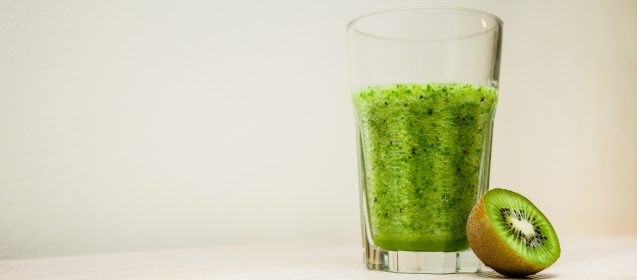
 If you’ve tried clean eating and found it way too hard to maintain, the problem probably isn’t with clean eating, even though there are situations where it’s tougher than when you’re eating at home. Eating clean doesn’t have to be expensive or tough to do. There are ways to actually make it easy and inexpensive.If you’re in a rush and simply don’t have time to cook at home for a week or two, it’s not a problem. There are inexpensive, quick healthy meals you can find already made at the grocery, in the frozen food department or from your favorite healthy restaurant.
If you’ve tried clean eating and found it way too hard to maintain, the problem probably isn’t with clean eating, even though there are situations where it’s tougher than when you’re eating at home. Eating clean doesn’t have to be expensive or tough to do. There are ways to actually make it easy and inexpensive.If you’re in a rush and simply don’t have time to cook at home for a week or two, it’s not a problem. There are inexpensive, quick healthy meals you can find already made at the grocery, in the frozen food department or from your favorite healthy restaurant.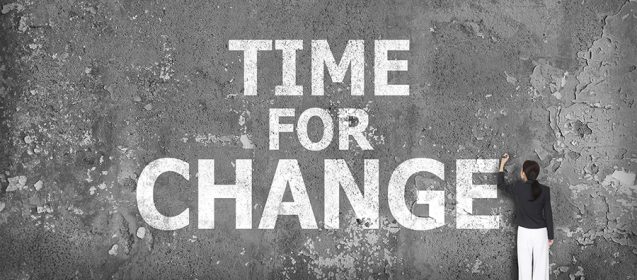
 If you’re focused more on what’s in the refrigerator than the television program you’re watching, learning how to crush nighttime cravings can help you lose weight or eat healthier. Nighttime cravings occur for a number of reasons. Sometimes the reasons are simple, such as you didn’t eat enough during the day or it’s a habit you formed years ago. It can come from psychological problems, such as depression or eating disorders. You can crush those cravings by using a few of these tricks to tame your desire.
If you’re focused more on what’s in the refrigerator than the television program you’re watching, learning how to crush nighttime cravings can help you lose weight or eat healthier. Nighttime cravings occur for a number of reasons. Sometimes the reasons are simple, such as you didn’t eat enough during the day or it’s a habit you formed years ago. It can come from psychological problems, such as depression or eating disorders. You can crush those cravings by using a few of these tricks to tame your desire.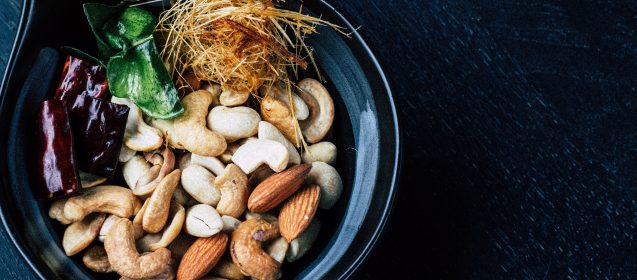
 You might be surprised to find that there are good snacks for weight loss. Your mother was right. Snacking does spoil your appetite and eating healthy snacks that are low in calories may be just what the diet doctor ordered. Snacking is a perfect tool for weight loss, when you eat healthy snacks, because it fills you up without adding extra calories, so you’ll eat less at the next meal. The ideal snack is lower in calories and higher in nutrients. Here are some of my favorites that you’ll easily find in Oceanside.
You might be surprised to find that there are good snacks for weight loss. Your mother was right. Snacking does spoil your appetite and eating healthy snacks that are low in calories may be just what the diet doctor ordered. Snacking is a perfect tool for weight loss, when you eat healthy snacks, because it fills you up without adding extra calories, so you’ll eat less at the next meal. The ideal snack is lower in calories and higher in nutrients. Here are some of my favorites that you’ll easily find in Oceanside.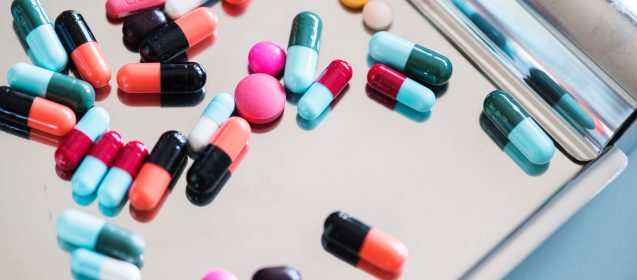
 It may seem hard to wrap your mind around these numbers, I know it was for me, but there are far more bacterial cells in the human body than human cells. Initially, the ratio was thought to be 10 to 1, but now is estimated more like 1.3 to 1. When you consider that blood makes up 84% of the human cells and that it doesn’t take into account fungi, viruses and archaea, which boosts that ratio back up to 10 to 1, it becomes rather a staggering statistic. While the average person has approximately 39 trillion bacteria, that number isn’t static, neither is the number of human cells. Bacteria plays an important role in the health of each individual. Probiotics aid in ensuring there’s a healthy balance of good bacteria.
It may seem hard to wrap your mind around these numbers, I know it was for me, but there are far more bacterial cells in the human body than human cells. Initially, the ratio was thought to be 10 to 1, but now is estimated more like 1.3 to 1. When you consider that blood makes up 84% of the human cells and that it doesn’t take into account fungi, viruses and archaea, which boosts that ratio back up to 10 to 1, it becomes rather a staggering statistic. While the average person has approximately 39 trillion bacteria, that number isn’t static, neither is the number of human cells. Bacteria plays an important role in the health of each individual. Probiotics aid in ensuring there’s a healthy balance of good bacteria.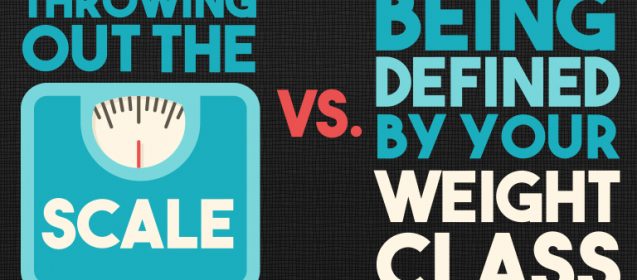
 I hear people in anguish over not losing weight and one thing I tell them is, don’t sweat the scale. You aren’t going to shed weight sometimes, but that doesn’t mean you aren’t making progress. Your weight is just ONE of the indicators that you’re doing everything right. The numbers on the scales have become a trophy when they’re lower and a taunting reminder of our failure when they’re not. It should be that way. In fact, some people may be far fitter than they were, wear smaller clothing sizes and still see the same number when they step on the scales.
I hear people in anguish over not losing weight and one thing I tell them is, don’t sweat the scale. You aren’t going to shed weight sometimes, but that doesn’t mean you aren’t making progress. Your weight is just ONE of the indicators that you’re doing everything right. The numbers on the scales have become a trophy when they’re lower and a taunting reminder of our failure when they’re not. It should be that way. In fact, some people may be far fitter than they were, wear smaller clothing sizes and still see the same number when they step on the scales.